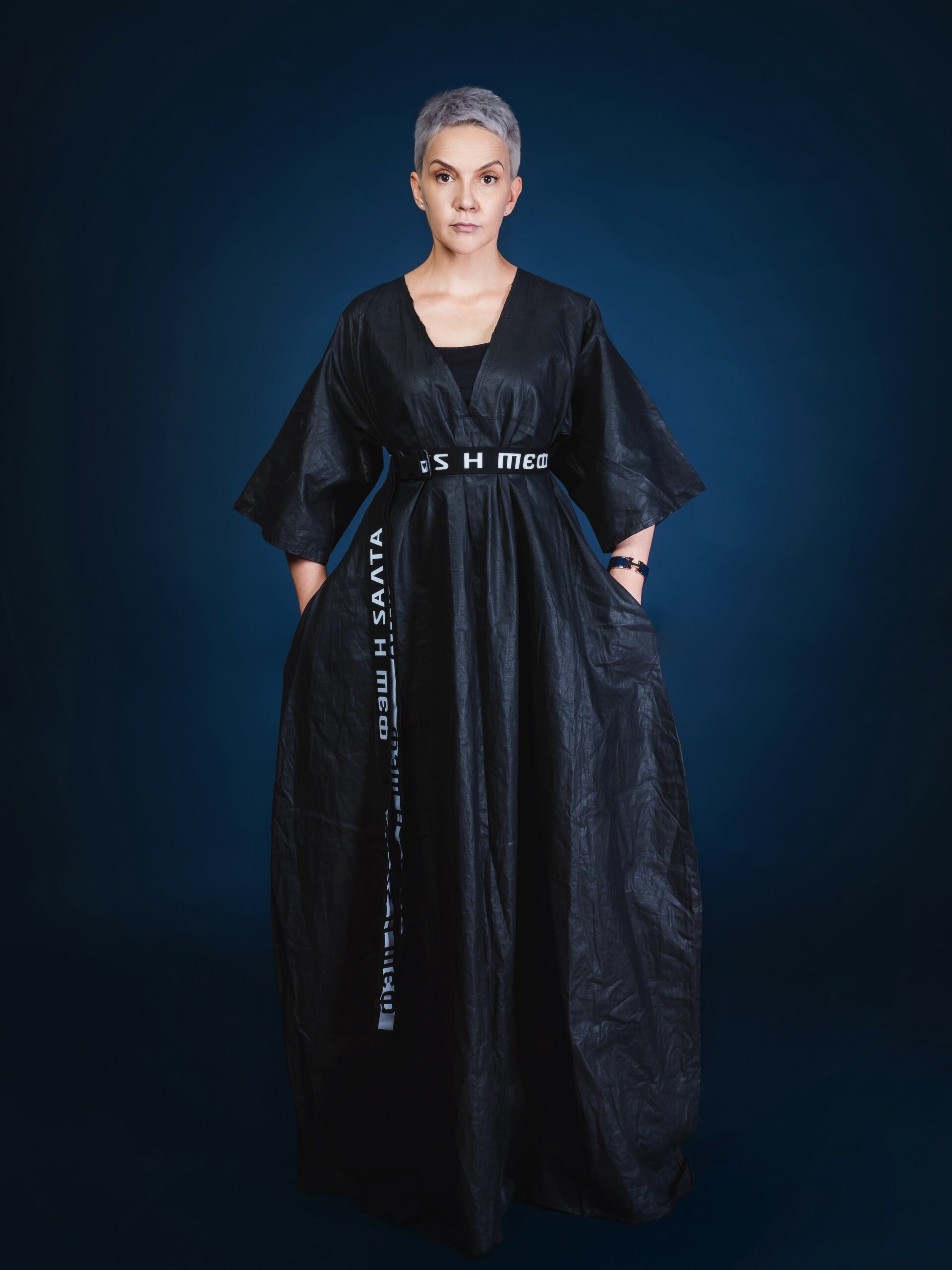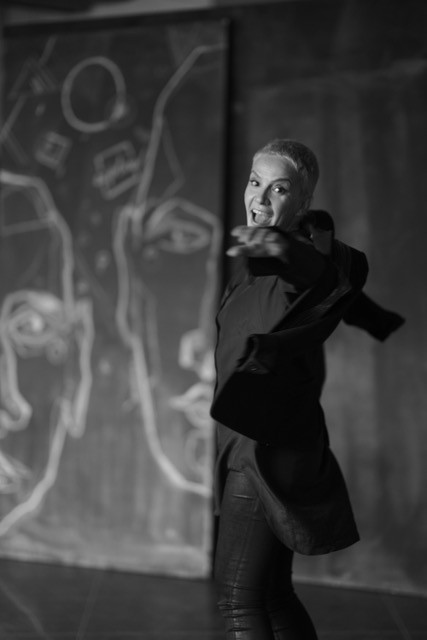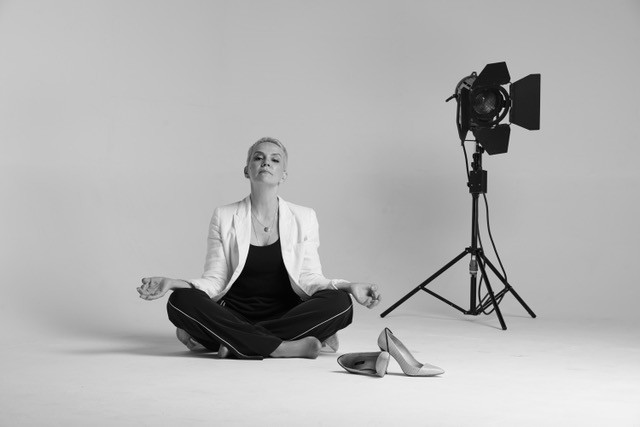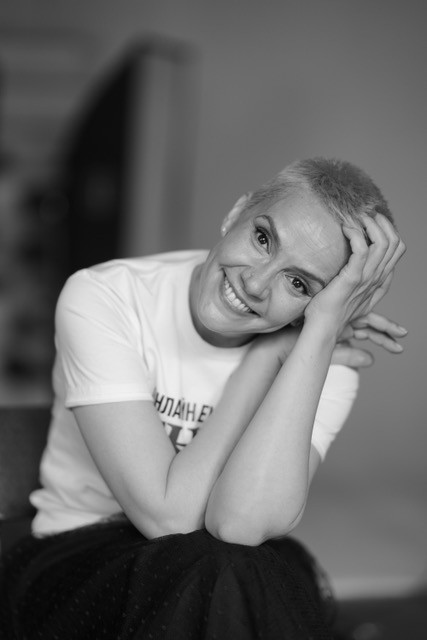We were lucky to catch up with Elina Kozino recently and have shared our conversation below.
Elina , first a big thank you for taking the time to share your thoughts and insights with us today. I’m sure many of our readers will benefit from your wisdom, and one of the areas where we think your insight might be most helpful is related to imposter syndrome. Imposter syndrome is holding so many people back from reaching their true and highest potential and so we’d love to hear about your journey and how you overcame imposter syndrome.
I’m afraid that the most honest answer to this question is this: if impostor syndrome exists, you live and work to overcome it almost constantly, but it is precisely this syndrome that makes the value of your achievements much higher than without it.
In my life experience, this problem did not arise by chance and was aggravated by many, including social problems, prejudices and even some clichés.
Let’s take a small detour – maybe you can share a bit about yourself before we dive back into some of the other questions we had for you?
I am a director by profession. I’ve worked for more than thirty years in various creative fields – documentaries, advertising, television (from live broadcasts to talk shows and thematic programs) and for the last ten years I’ve been mainly creating large events – large theatrical performances, festivals, exhibitions and concerts.
These are all very different areas of activity and I, like many creative people, did not immediately find my path. Moreover, it was immediately complicated by the fact that in society (especially during the period in which my creative youth fell) an unspoken principle was established that directing is a male profession and a successful and truly strong director is a man. A woman will be readily given a place in the acting profession, but in the “production” section you will not be taken seriously. Moreover, no one will say this directly and will most likely even deny it, but the director is most often expected to have the tough, heavy hand of a manager, an authoritarian approach, strong expressions, metal in his voice and other masculinity. Maybe I’m exaggerating a little on purpose. But believe me, only written so directly, it seems something grotesque. This was one hundred percent true during my youth and I know that in many respects it remains true now, despite all the long distance that society has gone through in order to at least formally equalize the rights of male and female artists. Hollywood has been quite active in this topic for the last decade and many stories have already served as good examples, but I am sure that we are still very far from true equality. And it’s not just about the rights of women creators. It also scares me that being active just for the sake of being active on this issue could lead to a skew in the rights of male artists. But I would like real parity, and rights and freedoms for equal creativity of all.
I got a little off topic, sorry.
I wanted to say that the path of any artist is full of doubts about himself and the fruits of his creativity, because the product of your activity is something that has complete identification with yourself. This means that any criticism is doubly painful. In addition, being creative almost always means looking for the ideal solution, and perfectionism also often leads to an increase in this syndrome.
Some artists, for example, generally believe that it is impossible to bring a painting to perfection, you can only stop working on it. The same can be said about the director’s attempts to assemble the ideal version of his film on the editing table. And it is precisely this same feeling that forces the theater director to constantly refine the play and update the cast, even if the play has been sold out for several seasons. For artists, the search for perfection is part of the journey. Therefore, many of us suffer from impostor syndrome. Unless the creator suffers from the syndrome of excessive self-confidence and narcissism. But that’s a completely different story.
If you had to pick three qualities that are most important to develop, which three would you say matter most?
Over my long creative life, I have developed several signs to identify this syndrome and several markers and techniques to make sure that this feeling heals and does not deprive the future.
Well, the simplest signs are:
-You don’t feel like the praise you’ve received is deserved
-Any difficulty that arose during the creation process (project, drawing, text, etc.) seems to you to be a sign that you are out of place
-Any criticism drives a nail into your creative freedom and self-confidence
-You quickly forget your successes and remember well all the failures and problems with projects
-It is quite easy for you to lose confidence in your ideas when you share them with someone
-Other people’s successes do not inspire you to new ideas, but make you think about your own imperfections
-And if you are a woman, then you often suspect that you were either praised with a degree of skepticism, so as not to offend because you are a woman, or you think in advance that even your good idea will not be appreciated or will be missed simply because you are a woman
Alright so to wrap up, who deserves credit for helping you overcome challenges or build some of the essential skills you’ve needed?
I can list for quite a long time, but I am sure that those who are generally familiar with this problem have a whole list of similar horror stories of their own.
Let me tell you better how I dealt with them and continue to deal with them now.
First, support. Especially at the beginning of your creative journey, the support of a loyal mentor will not hurt you. For me, my directing teacher was my first support. After university, it was to him that I showed my first raw works. And I was fueled by confidence thanks to his even the most insignificant praise.
The second thing I did, while I was still not experienced or brave enough, was to look for a producing partner for each project. In many areas of creativity, the main engines of a project are precisely such “pairs”. For example, on TV, it is the director and producer of the project who are the main creative and administrative engines of any project. I am sure that in many areas of creativity it is possible to put together such a “pair.” What does this do for you if you are trying to gain confidence in this way and overcome your rookie or impostor complexes? In my experience, thanks to such paired work, I solved several problems at once and also gained a lot of additional benefits and even mutual benefits. I was always looking for a male producer partner. In this simple way, I solved the problem of being heard where it is difficult for a woman to be heard, without spending a lot of energy fighting for her right to vote. And also, by gradually making my partner dependent on my opinion, because it was I who gave him the main production decisions, I made my figure more and more significant on the project without much stress and the need to add feigned brutality. At the same time, I saved energy on making complex decisions and interacting with officials of all ranks, and I had much more time for pure creativity. I know that this decision will seem controversial to many, and it certainly did not resolve my gender complaints about the male part of the creative workshop, but believe me, especially at that time, it was a brilliant find that worked well. Tested it myself.
Third. I learned to look for those who fall into the group of my admirers. It could even be parents, friends, colleagues – it doesn’t matter. Any creative project will find a grateful viewer or reader. Anyone. Because a creative product has one of the main features – subjective value, and that is why it will definitely find a subject (connoisseur) who will coincide with its beauty, lyricism, drama or ugliness, irony, etc. Be sure to use this energy of response and support.
But most importantly (and difficultly), I learned to praise myself. At first, almost mechanically and only on exceptional occasions. But gradually we learned to do this regularly, and since it was difficult for me to do this only for myself, I introduced this practice for the whole team. Usually, at the end of the project or at regular meetings, we sorted out failures and mistakes, but gradually I taught myself and the rest of the team to sort out and celebrate all successful solutions, discoveries, thank each other for support in the work, etc. Said out loud, also in the company of comrades, it is better and deeper embedded in the subconscious and taken on faith. This is how the overall spirit of victory in the team and your own confidence grow.
When I got older, having worked for 10-15 years in different creative teams, I began to insist on this practice as part of the general rules of the team.
There is one more and, probably, the most important and difficult question for every creative person. Do I have the abilities and should I even do what I do?
The difficulty with it is that there is no way to determine this. There is no method that allows you to calculate the parameters of the result of the creative process. But there is a way that will help you understand whether you should do it.
If in the process of writing a text, painting or any other creative process, at the end of the work, despite even the most severe fatigue, you feel a surge of energy and creative excitement (feeling tired is normal, do not confuse these two sensations), then absolutely, the process of your creativity fills you, you resonate with it and magic is exchanged within the process, which means you should definitely at least try. And if you decide and try, then take action and don’t let your inner impostor deprive you of this pleasure. Well, read the tips above and use them! They work.
And even to this day, after working on many different projects and more than 30 years of experience, I am once again in the process of launching a startup, and in the creative sector, which I had nothing to do with before. Of course, my inner perfectionist and impostor is getting ready to show. But I’ll keep a tight rein on mine. And you? I sincerely wish you victory!
Contact Info:
- Other: [email protected]







